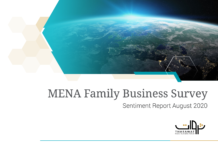
Millennials (people born between 1981 and 1996) are often thought of as a paradox in today’s business culture. So much has been written about them/us, with a lot of effort put into figuring out how to best harness millennial potential in the workplace – and yet, there is little in the way of consensus.
According to the Pew Research Centre, millennials account for the majority of the US workforce, with 54 million millennial workers compared to 53 million Gen Xers. By 2030, three-quarters of the workforce will be millennial, according to the US Bureau of Labor Statistics.
Millennials are, seemingly, more transient career-wise than any generation before. According to the Gallup report, How Millennials Work and Live, more than one in five have switched jobs in the past year, and 60 per cent say they are open to exploring a different occupational opportunity.
Losing millennial employees in their prime is a costly prospect for businesses, with the same report pegging the cumulative turnover cost to the US economy at $30.5 billion. And for organisations that lose this kind of talent, of course, the cost of filling positions goes well beyond a dollar figure.
Michael Lavigne is the President and CEO of Clearview, a Panasonic subsidiary based in eastern Canada that provides back-office software solutions to some of the biggest quick-service restaurant brands in the industry. He believes millennials bring certain qualities that any organisation would be wise to tap into.
“I learn a tonne from my team, most of whom are millennials,” Lavigne said. “It’s about how they do things and how they think about things differently, which tends to be very creative and quite useful in our organisation.”
Attracting millennials to an organisation is one thing – keeping them is something else altogether. However, there are some commonalities in the businesses that excel at doing so.
Create a Purpose-driven Workplace
Unlike previous generations, for whom picking up a paycheque every two weeks was enough reason to get out of bed in the morning, millennials generally need to feel good about the work they are doing and the company for which they are doing it. Quite often, this means embedding philanthropic or environmental initiatives into the DNA of business operations.
A study by Cone Communications found 75 per cent of millennials are willing to accept less pay if it means working for a socially responsible company. Furthermore, nearly 90 per cent expect their employers to be environmentally responsible in how they conduct business.
Support Professional Development
Millennials want to know that they are building a career, not just working for the sake of it, with the same Cone Communications study finding that 93 per cent are motivated by the ability to take classes, learn new skills and advance in their careers. In fact, “career pathing” has been cited by some as being one of the strongest tools in the quest to retain millennials.
According to information gathered by global recruiting company MRI, 53 per cent of millennials surveyed said the process of mapping incremental progression to new roles in a company is the biggest factor in their decision to stay with an employer. A critical part of this career pathing involves feedback from management and supervisors, although Michael Lavigne advises against doing this in the traditional form of an annual performance review.
“I don’t believe in annual reviews at all. Instead, I believe in continuous feedback, day-over-day, week-over-week, month-over-month,” he said. “I believe your feedback loop should be like an app, in that you’re getting instant feedback so that you can make adjustments and pivot very quickly.”
Foster Engagement
To lift a phrase from the baby boomers, if millennials are not tuned in, they will drop out, which can have a significant impact on the bottom line. A recent Gallup study found that businesses with highly engaged teams saw increases in profitability by 21 per cent, sales productivity by 20 per cent and output quality by 40 per cent.
For millennials, fostering engagement goes beyond foosball and snacks in the break rooms. They have a need to build a personal relationship with their colleagues – specifically, their supervisors.
Peter J Martel, a senior talent development consultant at Harvard Business School, has noticed a direct link in this area. “All of the research I’ve seen over the years about employee engagement really points, first and foremost, to the relationship with one’s immediate supervisor,” he said in an interview with the Harvard Extension School.
Be Realistic about Retention
The simple fact is very few young people in the workforce today will stay at the same company for their entire career. Many argue it is not advisable to do so, pointing to the various experiences and perspectives they get from working in different places.
Therefore, rather than saying, how can I keep this person here for as long as I can, businesses should look at ways to engage in shorter-term projects that pay off upon completion. For example, hiring for a two-year contract to build and deploy a mobile platform. If millennial employees stay past the two years, consider it a bonus. At the very least, there will still be a lasting impact resulting from their employment.









